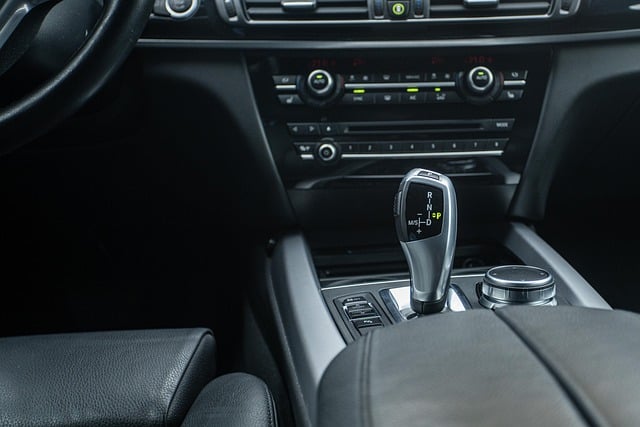When the paperwork that confirms your legal ownership of a vehicle goes missing or becomes marred, it’s crucial to act promptly to obtain a duplicate car title. This article serves as a comprehensive guide for vehicle owners in need of an auto title replacement. Whether you’re dealing with a lost title for a used car, managing the process while under an auto loan, or have a salvage title that requires replacement, understanding the steps and requirements is essential. We’ll walk you through each phase, from recognizing the necessity of your vehicle title to navigating the specific procedures for different situations, including fee calculation and utilizing the DMV’s title search services. Rest assured, with this guide, you’ll be equipped to handle your car title reissue efficiently and compliantly, ensuring you remain on the road without a hitch.
- Understanding the Importance of Your Vehicle Title
- Steps to Take When Your Lost Title for a Used Car Surfaces
- Navigating the Car Title Reissue Process for Auto Loan Holders
- How to Replace a Lost Car Title: A Step-by-Step Guide
- Calculating and Paying Lost Car Title Fees
- Utilizing DMV Auto Title Search for Title Clarity
- Securing a Salvage Car Title Replacement: Legal Considerations and Steps
Understanding the Importance of Your Vehicle Title

When it comes to vehicle ownership, the car title is a critical document. It serves as indisputable proof that you own the car, and it’s required for various legal and financial transactions such as selling your vehicle, transferring ownership, or securing an auto loan. If your original title has been lost or damaged, a car title reissue through the Department of Motor Vehicles (DMV) is essential to ensure you have the proper documentation in place. A lost title for a used car or a title for a car with an auto loan requires immediate attention because without it, you cannot legally drive nor can you prove ownership. The process for a lost car title reissue typically involves filling out an application form at your local DMV office or online if available, providing identification and proof of vehicle ownership, and paying the appropriate lost car title fees. These fees vary by state but are necessary to obtain a duplicate title. For those with a lien on their vehicle, additional paperwork may be needed to show that the debt is paid off, such as in the case of a salvage car title replacement, where proof of repair or insurance might also be required. In instances where legal assistance is needed, due diligence should be taken to engage with professionals who specialize in DMV auto title searches and procedures to ensure accuracy and compliance with state laws. It’s imperative to act promptly when your title is missing, as delay can complicate future car-related transactions. Whether for a standard vehicle or one that has been salvaged, the reissue process is designed to safeguard both the owner and the state’s motor vehicle records, ensuring a clear and legal record of ownership.
Steps to Take When Your Lost Title for a Used Car Surfaces

When your lost title for a used car surfaces, the first step is to contact your state’s Department of Motor Vehicles (DMV) or its equivalent to understand the specific requirements for a car title reissue. Typically, you will need to complete a application for a duplicate vehicle title, which can often be found online on the DMV’s official website. Ensure you have your personal identification details ready, as you will need to submit proof of identity along with evidence that you are the legal owner of the vehicle. If your car title for an auto loan was lost, additional paperwork may be required, such as a paid-off statement or a satisfaction of lien from the lender, proving that there is no outstanding loan on the vehicle.
Lost title fees vary by state, so it’s important to check these beforehand. The fee for a lost car title replacement can sometimes be higher than a standard reissue due to additional processing. If your title is lost and your vehicle is salvage titled, the process may include extra steps to ensure the vehicle’s history is correctly noted on the new title. In such cases, a salvage car title replacement might require submitting documentation that verifies the vehicle has been repaired and meets all state requirements for reinstatement of a regular title. For added assurance, consider seeking out lost title legal assistance if you encounter any complications or have questions regarding the process. This can help navigate the DMV auto title search protocols efficiently and ensure compliance with state laws, providing peace of mind as you obtain your duplicate vehicle title.
Navigating the Car Title Reissue Process for Auto Loan Holders

If you’re an auto loan holder who has misplaced or damaged your vehicle’s title, it’s crucial to initiate a car title reissue process promptly. This step is essential for maintaining clear ownership records and ensuring legal compliance. The process begins with a thorough DMV Auto Title Search to confirm the existing status of your vehicle’s title. You can start this search online or by visiting your local Department of Motor Vehicles (DMV) office. Once you’ve verified the necessity for a replacement, gather all required documents, which typically include a completed application form for a Lost Title for Used Car or Auto Loan, proof of current ownership such as the loan agreement or payoff statement, a photocopy of your government-issued ID, and any lienholder information. If your car has been salvaged, you will need to apply for a Salvage Car Title Replacement. Lost Title for Used Car fees vary by state but are generally comparable to standard title replacement costs. It’s advisable to check with your DMV for the exact fee structure and acceptable payment methods beforehand.
Upon submission of the application and supporting documents, the DMV will process your request for a duplicate car title. This involves conducting their own internal title search to confirm that there are no outstanding financial obligations on the vehicle. If you encounter any complications or require assistance with legal matters related to your Lost Car Title, seeking professional Lost Title Legal Assistance is recommended. With all paperwork in order and any lien issues resolved, you will receive your new car title, ensuring that you have valid proof of ownership for future transactions such as selling the vehicle or transferring it to another party. Always ensure that the replacement title reflects the correct information to avoid any legal issues down the line.
How to Replace a Lost Car Title: A Step-by-Step Guide

When the original car title is lost or damaged, it’s crucial to obtain a duplicate to maintain clear and legal ownership of your vehicle. The process for a car title reissue varies by state but generally involves several key steps. Firstly, contact your local Department of Motor Vehicles (DMV) to understand the specific requirements in your jurisdiction. This will typically include completing an application for a duplicate title, which can often be found on the DMV’s official website and submitted either online or through the mail. Ensure you have your vehicle’s identifying details at hand, such as the VIN number, as this information is necessary to process your request.
If your car was purchased with an auto loan, the lienholder will need to be involved in the replacement process. Provide proof of satisfaction of lien, which might be a paid-off statement or a release of liability from the lienholder. Additionally, you may require a bill of sale or other evidence of ownership for a used car title search. It’s also important to conduct a vehicle title search through the DMV to ensure there are no outstanding issues that could complicate your request for a lost title for a used car. Remember to check the lost title for auto loan terms and conditions, if applicable. The DMV auto title search will verify the current status of your car’s title and confirm that it is not subject to any legal disputes or liens.
Lost title fees vary by state but are generally nominal compared to the potential complications of driving without proper documentation. Some states may offer an expedited service for a fee, which can be beneficial if you require a salvage car title replacement urgently. In cases where legal assistance is needed, reaching out to a lawyer specializing in automotive law can ensure that all requirements are met and your rights are protected during the process. A comprehensive DMV auto title search will confirm the validity of your new title and provide peace of mind that your vehicle’s ownership is legally documented. Getting a duplicate vehicle title is a straightforward yet essential task to maintain legal compliance and facilitate future transactions involving your car.
Calculating and Paying Lost Car Title Fees

If you’ve lost your car title or it has been damaged, replacing it is a critical step to ensure you can legally operate and sell your vehicle. The process for a car title reissue varies by state but generally involves a form, proof of identity, and documentation that aligns with your vehicle’s details. Before proceeding, familiarize yourself with the lost car title fees specific to your jurisdiction. These fees are necessary for processing your DMV auto title search request and issuing a new document. Typically, you can find this information on your state’s Department of Motor Vehicles (DMV) website or by contacting them directly.
For those with a used car or those whose vehicle title for an auto loan is missing, the urgency to replace it is heightened. Not only does a valid title facilitate the transfer of ownership, but it’s also required to register your vehicle in your name. If your car was salvage title-branded due to previous damage, you may need additional documentation and potentially salvage car title replacement legal assistance to ensure proper reissuance. Regardless of your situation, the DMV will provide a title search for vehicle services to confirm the status of your title and guide you through the process. Ensure you complete all necessary paperwork accurately and submit it along with the appropriate lost car title fees to avoid delays in receiving your duplicate vehicle title.
Utilizing DMV Auto Title Search for Title Clarity

If you’ve misplaced your vehicle’s title or it has been damaged, clarifying your ownership status is paramount. The DMV’s Auto Title Search feature is an invaluable tool for achieving this clarity, especially when dealing with a lost title for a used car. This service allows you to verify the current status of your title and provides essential details about your vehicle’s registration and ownership history. It’s crucial to initiate a DMV Auto Title Search before proceeding with a car title reissue to ensure all information is accurate and up-to-date, particularly if there’s an auto loan involved. The search can reveal any liens or encumbrances on the vehicle, which must be settled before a Lost Title for Auto Loan can be replaced.
To replace a lost car title, start by gathering the necessary documentation, which typically includes proof of identity, proof of insurance, and evidence of lien satisfaction if applicable. The appropriate form for a Car Title Reissue should be completed and submitted along with the required fees for Lost Car Title Fees. These fees vary by state, so it’s essential to check with your local DMV for exact costs. For vehicles that are salvage titled, such as those that have been heavily damaged or totaled, a Salvage Car Title Replacement is necessary. In cases where legal assistance is required due to complexities like disputes over ownership or settlement of an auto loan, seeking professional Lost Title Legal Assistance is advisable to navigate the process smoothly and in compliance with state regulations.
Securing a Salvage Car Title Replacement: Legal Considerations and Steps

When a vehicle’s title is lost or damaged, especially in the case of a salvage car, it’s imperative to secure a replacement promptly for legal and ownership transfer reasons. The process for obtaining a duplicate vehicle title, officially known as a car title reissue, can be initiated through the Department of Motor Vehicles (DMV). For those who have lost their title for a used car, initiating a DMV auto title search is the first step. This process verifies the current status of your car’s title and ensures that there are no liens or other encumbrances that could complicate future transactions. To apply for a lost title for a used car, gather the required documentation, which typically includes proof of ownership, such as a bill of sale or previous registration, along with a completed application form for a car title reissue. If your vehicle is under an auto loan, additional paperwork may be necessary, including satisfaction of lien documentation from the lender.
The fees associated with a lost car title vary by state but are generally nominal compared to the potential complications of not having an official title. For salvage car title replacement, there are additional legal considerations due to the vehicle’s status. A salvage title indicates that the car has been damaged extensively and is often branded as such until it meets the state’s criteria for repair or total loss evaluation. Owners of salvage vehicles must ensure that all repairs are properly documented and may require legal assistance to navigate the process. Once the vehicle passes inspection and any necessary repairs are verified, obtaining a duplicate vehicle title can proceed as with a standard reissue. Ensure that all paperwork is complete and accurate to avoid delays in receiving your salvage car title replacement. It’s advisable to check with your local DMV for specific requirements and timelines associated with the replacement of a lost or damaged vehicle title.
When the need arises for a duplicate car title due to loss or damage, navigating the process can be both necessary and straightforward. The Department of Motor Vehicles (DMV) offers clear procedures for obtaining a replacement auto title, ensuring that vehicle owners have the required documentation to sell, transfer, or register their vehicles. By following the outlined steps, which include submitting the correct paperwork, providing personal identification, detailing vehicle specifics, and addressing any outstanding liens, you can easily acquire a lost title for a used car, manage car title reissue for auto loan holders, and even proceed with a salvage car title replacement if necessary. Remember to calculate and pay the appropriate lost car title fees to complete your application. Utilizing the DMV’s auto title search feature can also aid in clarifying any discrepancies or issues with your vehicle’s title history. For those who require additional assistance, professional lost title legal help is available to guide you through each step. With these resources and steps, securing a duplicate vehicle title is an achievable task, safeguarding your rights as a vehicle owner.



